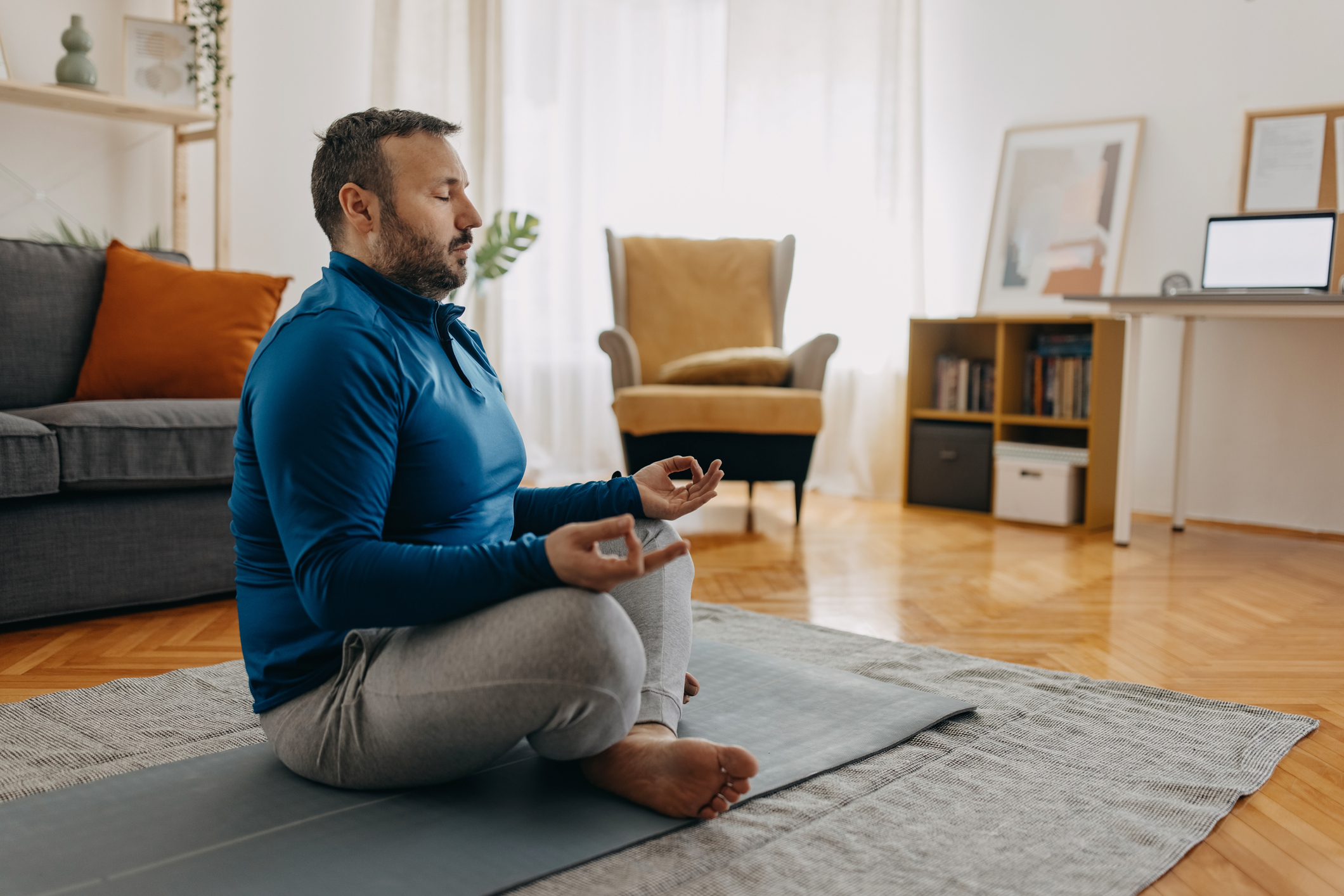Sources of stress are everywhere, and unchecked stress can increase your risk for serious illness. Dr. Ronesh Sinha offers tips to help you better manage your stress.
Dr. Ronesh Sinha is an internal medicine physician at Palo Alto Medical Foundation. He works with patients to help reduce heart disease and diabetes risk by considering how factors like stress and lifestyle contribute to health and well-being. Here, he offers tips on how to lower stress levels and minimize the toll of stress on your body.

Dr. Ronesh Sinha, Palo Alto Medical Foundation
“A stress-free life would be ideal, but in our busy lives and 24/7 news cycles, we often take on more stress inducing activity and information than we can easily handle. While we can’t completely eliminate stress, we can practice techniques that can be profoundly effective in reversing the damage that chronic stress does to our bodies,” says Dr. Sinha.
Pay attention to your breathing
- Slow down and take deep breaths to activate the parasympathetic nervous system. Start by noticing your breathing and making it slower and deeper. Put one hand on your chest and one on your belly. As you inhale, feel your belly expand while your chest stays still. Breathe in through your nose and open your mouth slightly as you exhale.
Practice the “Relaxation Response” once or twice each day
- Sit quietly in a comfortable position and close your eyes.
- Deeply and consciously relax all muscles, from head to toe.
- Breathe slowly, with awareness of your breath.
- Focus on a single word as your anchor; for example, “calm” or “release.” If your mind wanders, just bring it back to the anchor word and your breathing.
- Continue in this quiet mode for 10 to 20 minutes. The longer, the better.
- When you finish, sit quietly for a few minutes, first with eyes closed and then with eyes open.
Add Joy to Your Daily Life
- Get outside – take a walk or tend to your garden. Research shows that nature reduces the physical effects of stress.
- Listen to relaxing or upbeat music that recalls carefree times. Sing along! The louder the better to release your diaphragm and expand your breadth.
- Play – whether it’s an organized sport or enjoying a board game, playing helps regulate our racing minds.
- Laugh – It really is good medicine.
Move More
- Reduce the time you spend sitting, whether it’s a walk around the block, doing household chores, or simply standing up and moving when you talk on the phone.
Chose Happiness-Inducing Foods
- Avoid sugar which causes an insulin spike, followed by an energy crash.
- Limit caffeine which can increase your cortisol (stress hormone).
- Eat more whole foods that include healthy fats like those in fish, walnuts, flaxseed, avocados, olive oil, almonds, and lean proteins. Chose whole grain, high-fiber, and low-glycemic-index carbohydrates; fruits and vegetables.
Slow Down and Pace Yourself
- Rushing from one event or task to another escalates internal time pressure which correlates to heart disease risk. Deliberately slow down during the day, practice breathing exercises (like the Relaxation Response exercise above), and spend some time outdoors every day.
- Shut off personal devices (no social media) and focus on a few important tasks only. Single tasking is more productive and less draining than multi-tasking.
- Give family and friends your undivided presence. Make eye contact, put away digital distractions and listen mindfully.
Dr. Sinha Explains How Stress Affects Our Bodies:
What happens physically during times of stress?
- An accelerated heartbeat
- Opening of lung airways to improve oxygen delivery
- Release of adrenaline to speed you up
- Release of glucose to power muscles
- Widening of pupils to improve vision
- Lowered gastrointestinal activity so you can run, not digest
How does stress affect the brain?
- Chronic stress – a “Fight or Flight” reaction that persists even when an immediate trigger subsides – adversely affects a key structure in the brain, the hippocampus, leading to impaired memory and problems with orientation and sense of direction.
How does stress disrupt sleep?
- Continuous stress causes our bodies to pulse out stress hormones, making it harder to fall asleep and impairing the deepest stages of sleep. This can lead to hyperarousal insomnia, where you are easily woken by sounds or stressful thoughts.
Why can stress make you feel tired?
- Your adrenal glands act like battery packs providing energy-producing substances such as adrenaline, a key part of the stress response. When people overuse these limited battery reserves with endless work and personal demands the result is fatigue.
Get Help
“Know when you might need help. There’s no shame in asking for help from a licensed professional if you find your own efforts at stress relief are not working. Your peace of mind and health are at stake,” says Dr. Sinha.





